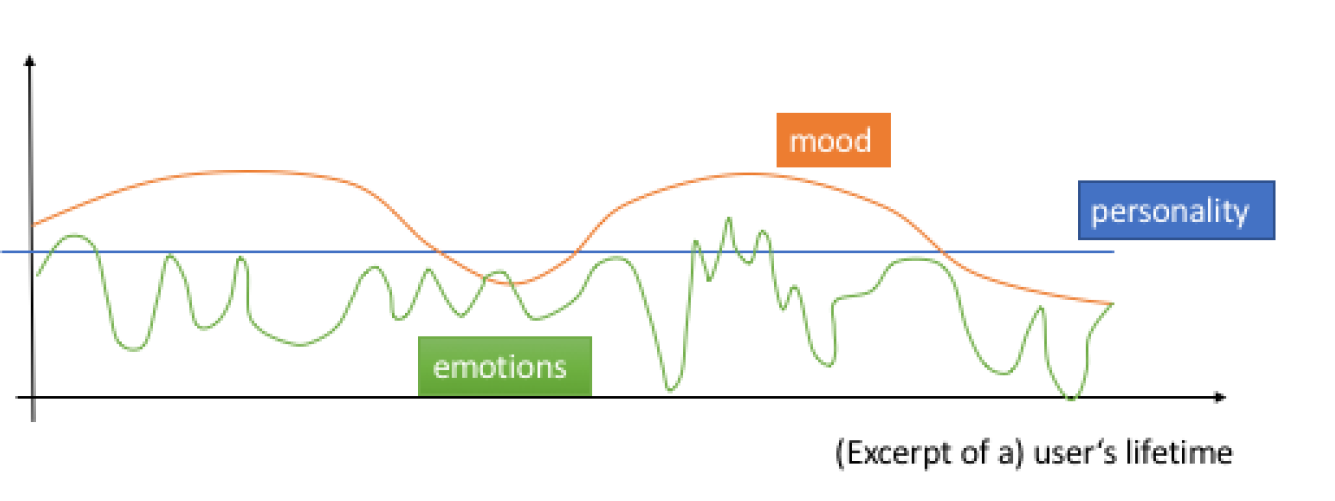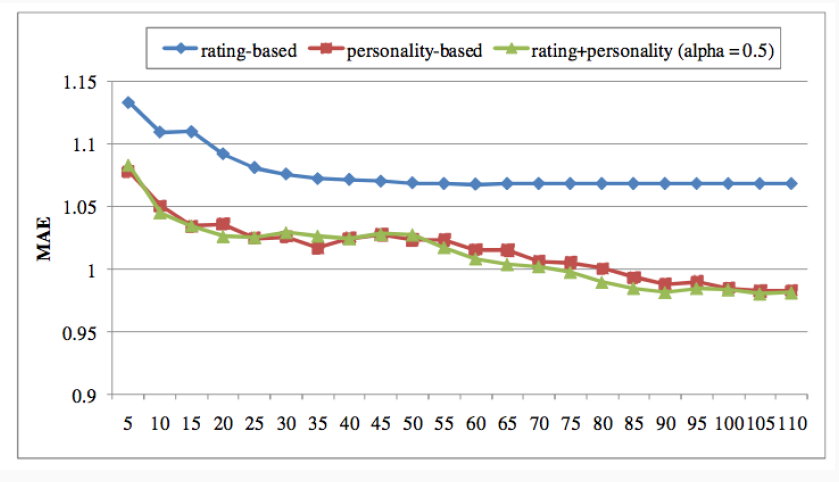At the RecSys 2018 conference on recommender systems, a very interesting tutorial was given on the first day by Marko Tkalčič from the Free University of Bozen-Bolzano. In his presentation he focused on how emotions, mood and personality shape the way we consume recommendations.
Emotions, Mood and Personality shape the way we behave
Marko first reminded us that we, human beings, behave according to our emotions, mood and personality. Yet the latter vary according to different frequencies (the graph below, from Marko’s presentation sums it up very nicely).
Choice is driven by emotions
Marko made a good job at showing that choices we make may be driven by emotions. Consumption of movies and music are driven by emotions regulation he said, which led me to wonder what’s the reasoning behind linear scheduling where everyone gets to see the same movie at the same moment. If our consumption is driven by fugace emotions (see figure above) this makes no sense from the consumer viewpoint. Yet the technology didn’t allow fora different model until a decade ago.
Personality drives also our way to consume media
Another important insight from Marko’s presentation is that personality is a constant in our way to behave. Personality explains for instance why some of us like horror movies and other don’t, why we are open to certain types of music while other people aren’t.
The research by Hu and Pu (2010) is in this perspective especially interesting. It shows that using personality to make recommendations is a rewarding strategy (see figure below).
How to use personality when building recommendation systems ?
Possible applications of personality in recommender systems include
- content recommendation (ruled-based classifiers)
- new user problem (user similarity, MF)
- diversity (ruled-based classifiers)
- group recommendations
I’m especially interesting in the applications on diversity since personality is a driver of how open we are to more diverse (and thus less precise) recommendations. This has important consequences for public service medias which strive to “open the minds” of citizens (see my keynote at the FATREC workshop). In that perspective recommender systems should be respectful of users’ personalities in proposing more or less diverse recommendations.
Image : shutterstock
Posted in big data, Research.

